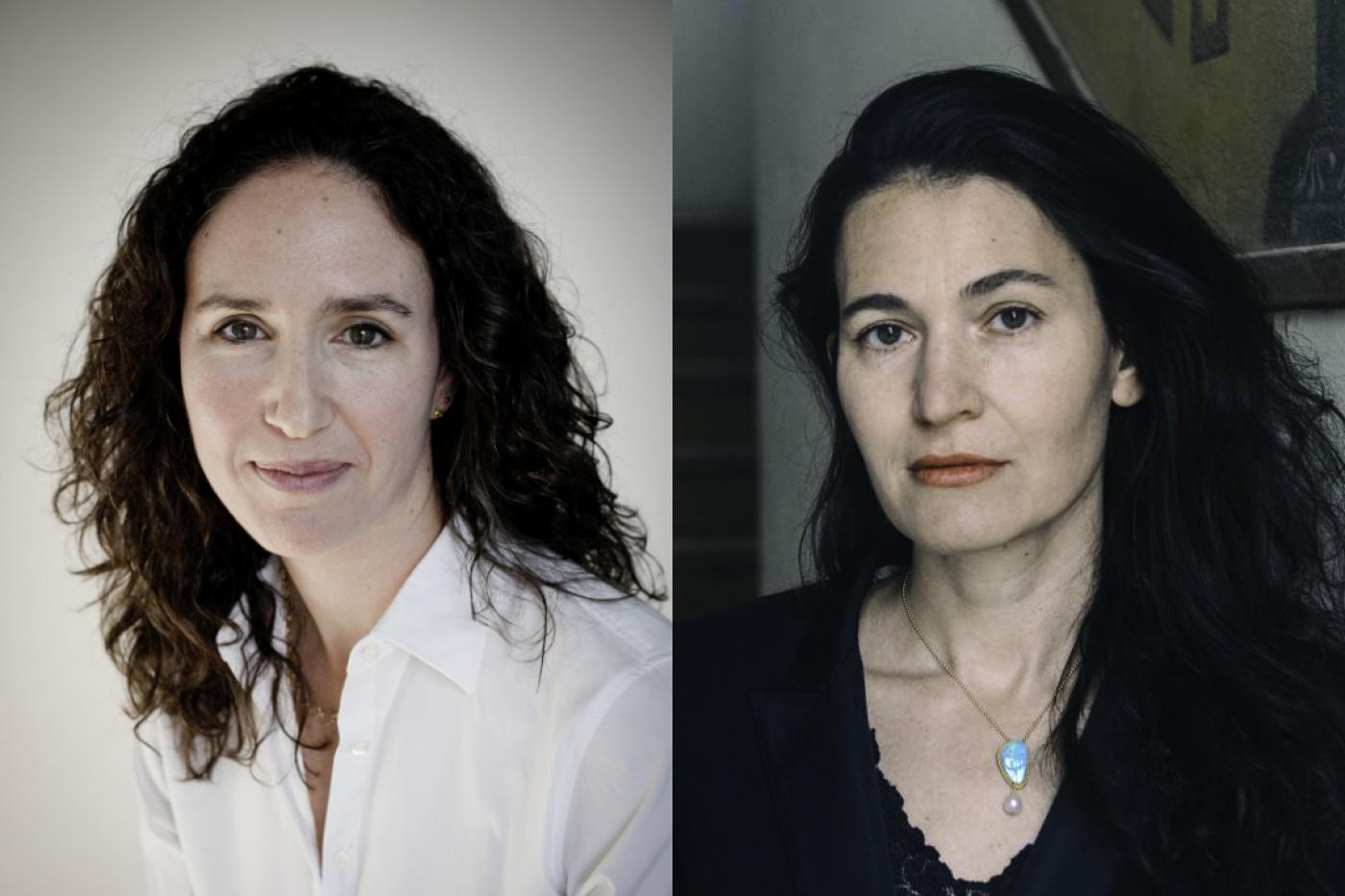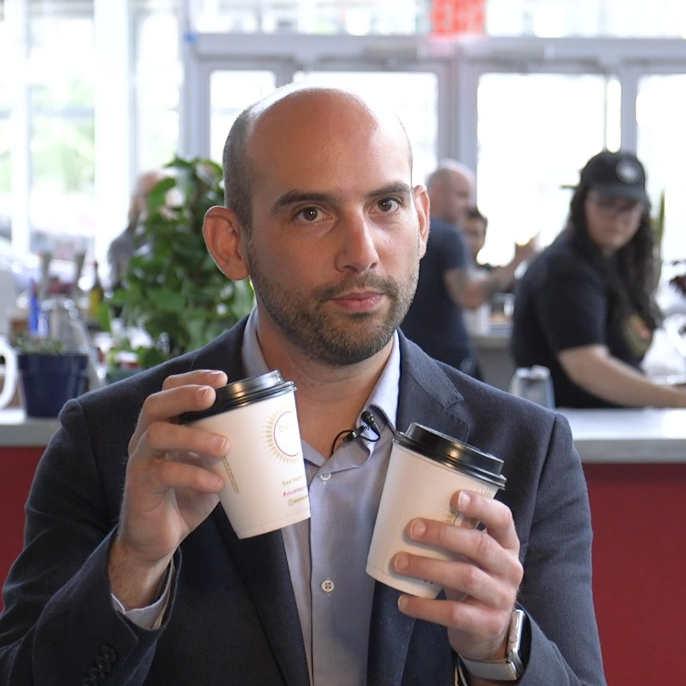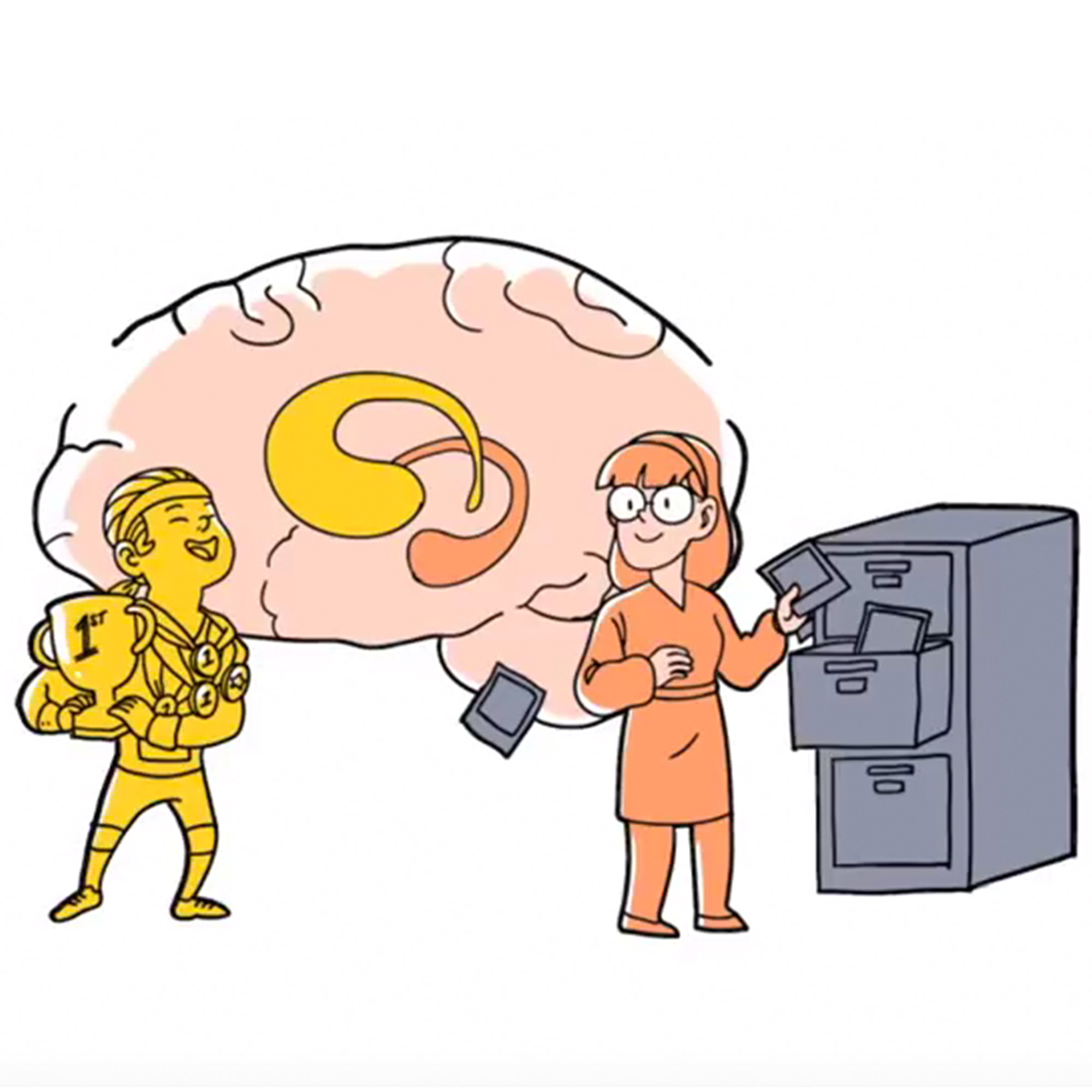NEW YORK — Nicole Krauss, the award-winning author of four novels and a collection of short stories, recently finished her tenure as the first Alan Kanzer Writer-in-Residence at Columbia’s Zuckerman Institute. The residency gives one writer per year time and support for creative pursuit, forges formal and informal interactions with scientists and promotes engagement across the Institute and the surrounding community.
Reflecting on her time among researchers, Krauss sat down for a conversation with Daphna Shohamy, a principal investigator at the Zuckerman Institute and her host for the residency. The novelist and the neuroscientist discussed how the experience shaped Krauss’ thoughts on writing and creative process — and how Krauss shaped the perspectives of the scientists she met with questions about why we are the way we are.
Presented here are excerpts from this online event, “Constructing Reality: From Narrative to Neuroscience,” which took place on June 4. This text has been lightly edited for content and clarity.
KRAUSS When I finish a book, I have a period in which I need to grow and learn. That’s when this residency started, just after I finished writing my last book, To Be a Man, in a moment of being open to new ideas that could become the engine for a new book.
One of the ideas that propelled my first novel, about a man who loses his memory, came from neurologist Oliver Sacks. He wrote about how the brain needs coherence above all else, even above an authentic accounting of the world. That stayed with me.
SHOHAMY I’ve admired your work for a very long time. Even before our first conversation, I had the sense that your work offers a powerful perspective on how we think about mind and humanity within the dimensions of science. It was a dream come true to have you here and in conversation with my colleagues and I at Columbia.
In the last few months of your residency, you came up with a very original idea for a project of exploration, developing a list of questions that you wanted to ask the neuroscientists here, at that nexus of trying to link narrative and fiction to science. What I love about these questions are that they are about the unknowns in neuroscience, questions that we may one day have scientific answers to, but which we don’t have answers to today.
KRAUSS I was imagining a woman who goes before a Kafkaesque jury of neuroscientists and asks them to explain to her why she is the way she is. At the end of the day, that is part of what a novel is: an interrogation of why are we the way we are, why we make the decisions that we do, why we make the mistakes that we make and what desires, hopes, and fears propel us into the stories of our lives.
Thinking about that jury, I wrote a list of 12 questions that I asked 12 neuroscientists:
If you had to describe the main function of the brain that stands above all else, what would it be? Do physical and emotional pain differ in the brain, and if so how? What happens in my brain when I try to will myself into doing something? How does the brain create the sense that we’re individuals rather than something part of the vast continuum? Do we have the physical sense that thinking is located in our heads, and if so why? Is there any distinction in the brain between thoughts and feelings? What are dreams for? Does the brain sometimes prioritize the imagination over an assessment of facts? What jolted our species into consciousness? What do you think happens to the brain in the moments leading up to and following death? If you could do any experiment on humans, if there were nothing that you had to worry about ethically, what would it be?
I was imagining a woman who goes before a Kafkaesque jury of neuroscientists and asks them to explain to her why she is the way she is.
SHOHAMY There’s such play and joy here. Thinking about large questions like this is something scientists do all of the time, but the daily projects of science can sometimes feel disconnected from big philosophical questions. Having you to help us wander into that space in between is a real gift. I’m curious, what are some answers to these questions that took you by surprise?
KRAUSS One thing I hooked into early began with a conversation you and I had about memory. I had understood memory to be a creative act, but I thought about it as something that serves our pasts, something that creatively meets our need to create coherence from our pasts.
What I never thought about, and what I learned from you, was the idea that memory is first and foremost a tool for predicting the future. It made me think a lot about my own work. When I’m writing about people, I’m trying to understand when and why they transform and when they don’t, mistakes, why they become lost, what drives them, why they change. I’m often asking these questions in context of their pasts. But your thinking unlocked for me this beautiful sense that we do all that because we want to be prepared for the future, or we want a different future.
SHOHAMY There’s this really interesting connection, as you’ve said, about how our brains need the past so they can create a generative model about what’s going to happen. In talking to you about what goes through your mind when you’re building a novel, it sounds like that’s what you’re searching for: some kind of internal logic and structure for a narrative so that you can make those predictions about your characters. Could you share some other insights you gained from your questions?
KRAUSS The more I had these conversations about the brain, the more I found echoes between the way I think about making sense of the world and the way scientists think about how the brain makes sense of the world.
One scientist told me that one of the most fundamental things we don’t know about the brain is why it is unified. Why do you only do one thing? Why do you only perceive one thing? Illusions can happen when there are two interpretations that you can go back and forth between. But there’s something in the brain that at every level, at every moment, is trying to present a unified percept.
This sent off fireworks in my mind. I’m very uneasy with one way of looking at things. I have never written a novel that has only one perspective. My novels tend to be polyphonic, with multiple narrative strands and multiple perspectives. Kind of cubist, in a way: the whole is the harmony between the parts, the patterns that are formed between the different narratives.
SHOHAMY In some of your work, like Forest Dark, even a single self has multiple parallel existences.
KRAUSS Exactly. On one hand, what that neuroscientist said is so striking and so true, this longing for wholeness. Yet we know that that one unified perspective or action or way of seeing things is not enough to get at the truth. That’s part of the joy of writing novels: taking on other voices and living other lives.
Perhaps one day I will look back on all of my work, all the voices I have explored, and I’ll discover that unified picture of what my brain has seen as it looked at life.



